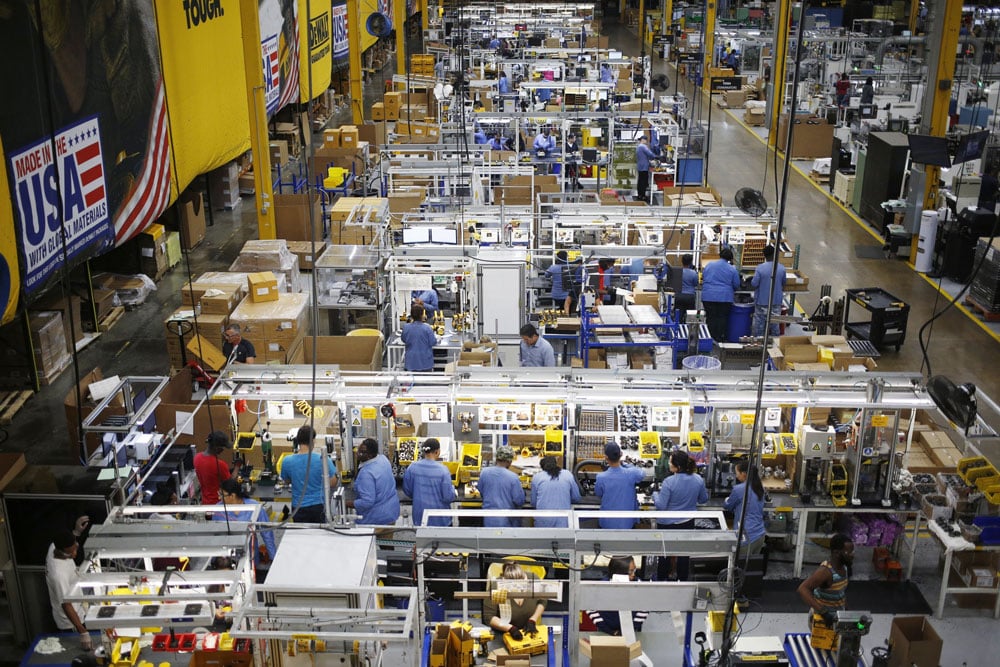Looking at your own openings, you’re probably not surprised to read job growth in the United States remains relatively strong. In the latest national jobs report, manufacturing was even one of the areas with “notable job gains.” The problem is that “a massive mismatch between supply and demand” continues to challenge businesses looking to hire. This article discusses one big differentiator — flex work.
Across industries, there’s an estimated “1.7 job openings for every available worker.” Warehouses, meanwhile, are looking at “long-term labor shortages that will only compound in the coming years.” It means you’re not alone in looking to find a hiring advantage in a competitive labor market.
Even as business continues to boom, one global search firm leader wrote, “Hiring has become a nationwide game of musical chairs, only the music never stops, and no one is sitting down.”
One of our recent blogs looked at how rural employers can reboot their hiring efforts. Yet our manufacturing and distribution partners in major metro areas also struggle to recruit entry-level employees for shift work.
You might think hiring is easier for employers in a large city. For one thing, there’s more people to choose from as the number of employable people is exponentially larger. But there are also many more employers in that location looking to get workers in their doors.
The shifting work philosophy, where people want to work to maintain their lifestyle but not more, is transforming hiring whether you’re in a big city or a rural town. That’s the reality driving businesses to seek out fresh hiring advantages.
Wages not the only way to appeal
In the latest jobs report, Average hourly earnings have continued to rise. In the October jobs report, they were up by 0.4%. That’s even a bit faster than September when wages grew 0.3%.
Yet it’s not always possible to use wages to vie for employees. In many markets, manufacturers and distributors with entry-level availability can’t hope to compete with the likes of Amazon if hourly earnings are the only lever they’re looking to push or pull.
Instead, we’ve seen success when we can advertise a job and say, “take time off when you want.” Stop penalizing employees for trying to balance their work and personal lives and you’re likely to have more hiring momentum.
Ultimately, today’s workers want choice.
Generally, millennials get blamed for the transformation in how workers view work. But it’s not just young people deciding to work only to maintain their lifestyle.
Pointing to the pandemic isn’t fair either. Attributing the shift to what’s being called “The Great Reshuffle, where all elements of how we work are undergoing tremendous shifts,” ignores the fact that even before COVID-19 people were reconfiguring their expectations of work.
Flex workers are committed too
We run into a perception on the employer’s side that these workers are lazy. But that’s not it. They’re willing to work. We’ve even seen 25-hour-work-week employees outperform their counterparts doing 40+ hours.
Flex work is not about building a market of strangers who just want to work a job for a day. This is filling openings with workers who want consistent but flexible work, for the long-term. They simply want the confidence of knowing they can craft a schedule that suits their life, without the risk of getting points or being fired for putting school, family, or other obligations first.
Vinita Youngblood, a worker in LaFayetta, Georgia, backs this up. She’s said, “MyWorkChoice is so much easier with my kids! I don’t have to worry about ‘points’ when it comes to doctor appointments or anything considering my children!”
On top of that, manufacturing or distribution can offer an easy-to-learn job that doesn’t require walking up to strangers’ homes in the dark with food or letting intoxicated strangers in your car with the benefit of flexibility. Even the most tedious or boring job becomes a lot more tolerable, even attractive, when people can do that on shifts of their own making.
By creating a variety of shifts, you offer people a trade they’re willing to make. You let them earn the money they want on their terms. In return, they give their performance and longevity. Taking away the “if I take time off, they’re going to yell at me” threat, opens the hiring pool up. Now, you have access to college students, parents, the semi-retired, and others who want a different type of work experience.
Get creative in a competitive market
Your business might need to try new strategies to attract top talent in this competitive market. That can include putting your network to work, promoting your job openings in the right spaces, communicating your passion, and getting creative with incentives.
Offering flex work is one of the creative incentives we’ve seen make a difference. Capitalize on potential by taking a more flexible approach. You can get resourceful, reliable employees with transferrable skills and a great work ethic. How? By changing your perspective of what defines a “good worker.” It isn’t the total number of hours they work. It’s the consistent quality of work they bring to your team.
MyWorkChoice can expand your employee pipeline by offering workers a flexible schedule and health benefits too. Whether people work full- or part time hours, we give everyone access to health care. Add that to the convenience of our mobile app where people with little or no experience can pick up or drop shifts, and you’ll see what a difference it makes to meet workers’ fresh expectations.
Learn more about MyWorkChoice’s fully managed flexible staffing solution.





